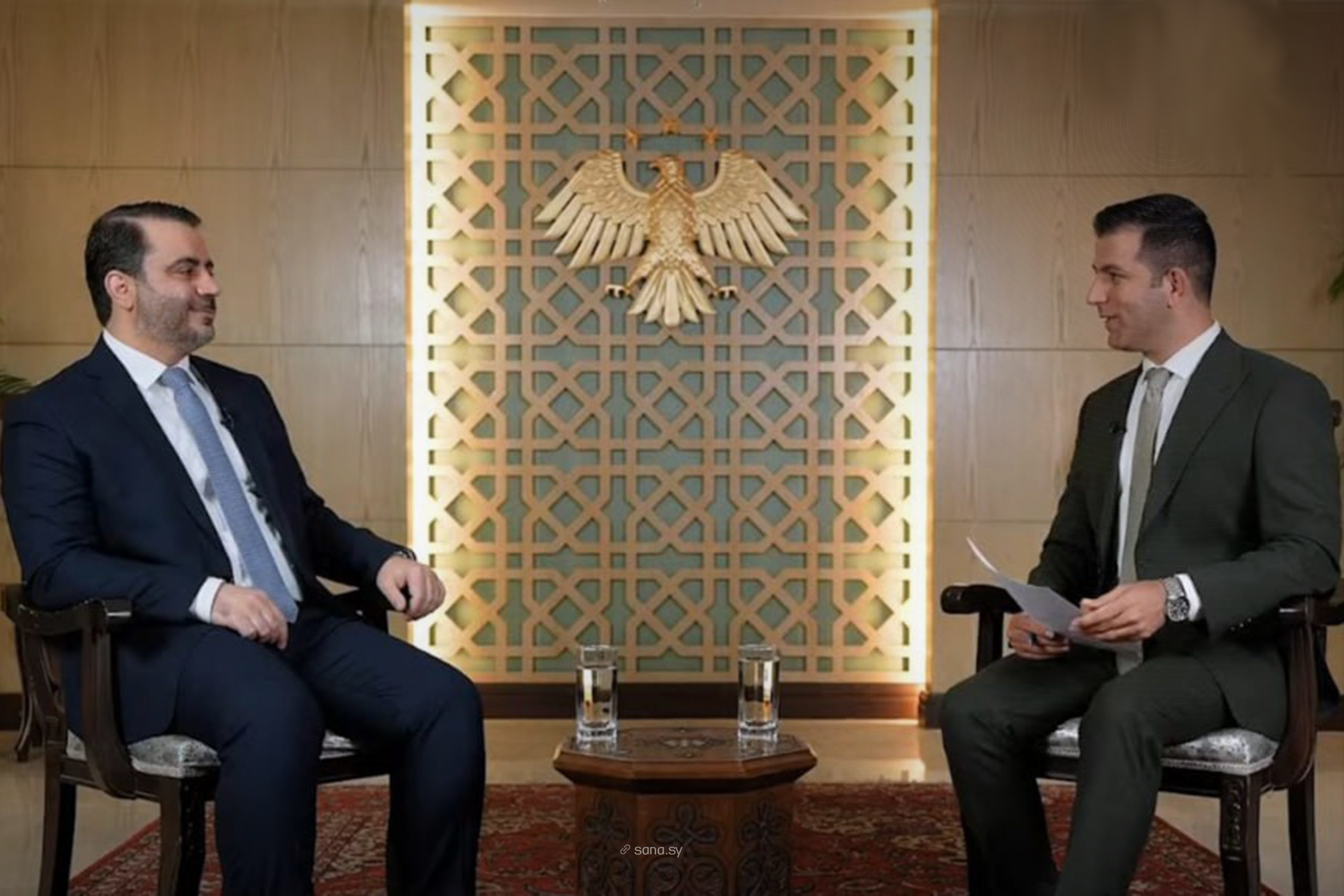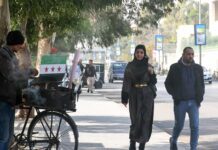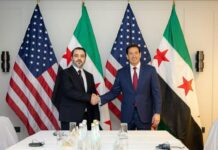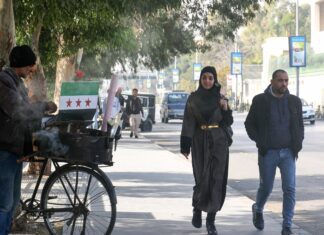
Syrian Foreign Minister Asaad al-Shaibani said in a televised interview that his country’s foreign policy is undergoing a “historic transformation” aimed at reshaping Syria’s image abroad and rebuilding relationships damaged by decades of isolation. Speaking to Al-Ikhbariyah TV on October 18, Shaibani said the current government “did not come from palaces, but from the womb of the revolution and suffering,” and now seeks to represent “the voice of the Syrian people and their aspirations.”
He described the new diplomatic approach as one rooted in openness, dialogue and balanced cooperation, moving away from what he called the Assad regime’s “blackmail diplomacy.” Shaibani said the Ministry of Foreign Affairs has become a “first line of defense for national interests” and a cornerstone in the reconstruction process. He added that Syria’s participation in the UN General Assembly marked a “diplomatic victory” and allowed Damascus to share its vision of rebuilding and stability directly with the international community.
Rebuilding Relations with Russia, China and Lebanon
Shaibani confirmed that Syria’s foreign policy now avoids alignment with any bloc or “axis,” emphasizing a nonpartisan and pragmatic approach. In the wake of the recent Moscow visit, he said agreements made by the former regime with Russia “are under review and suspended,” noting that “no new accords have been signed.” The minister added that the government is reassessing Moscow’s military presence “to ensure it aligns with Syria’s sovereignty and long-term interests.”
Regarding China, Shaibani announced plans for an official Syrian delegation to visit Beijing early next month, describing relations with China as “re-corrected” after years of political bias toward the previous government. He said, “All our diplomatic moves are calm and planned, and do not compromise the rights of Syrians.”
On Lebanon, Shaibani stated that Syria is “correcting the relationship on the basis of mutual respect,” acknowledging that the former regime’s policies “harmed Syria’s image in Lebanon.” He said Damascus has begun “procedural steps” in cooperation with Lebanese authorities on the return of Syrian detainees and is prioritizing the dignified repatriation of refugees.
National Cohesion and Internal Challenges
Addressing domestic issues, Shaibani referred to the unrest in Suwayda as a “Syrian wound” and urged local leaders to help restore unity. He accused “foreign parties, including Israel,” of exploiting the situation to destabilize the country. The foreign minister reiterated that Damascus rejects “any form of division or federalism,” describing Syria’s territorial integrity as “a red line that cannot be crossed.”
On relations with the Syrian Democratic Forces (SDF), Shaibani said dialogue is ongoing to integrate the group’s institutions into the state framework under the March 10 agreement, signed earlier this year by President Ahmad al-Sharaa and SDF commander Mazloum Abdi. He said the accord “represents a historic opportunity for partnership” and that delays in implementation “harm civilian interests and slow the return of displaced people.”
Shaibani concluded that Syrian diplomacy “will remain a bridge connecting Syria to the world on the basis of mutual respect,” emphasizing that the coming phase is “one of peace, reconstruction and national renewal.”








